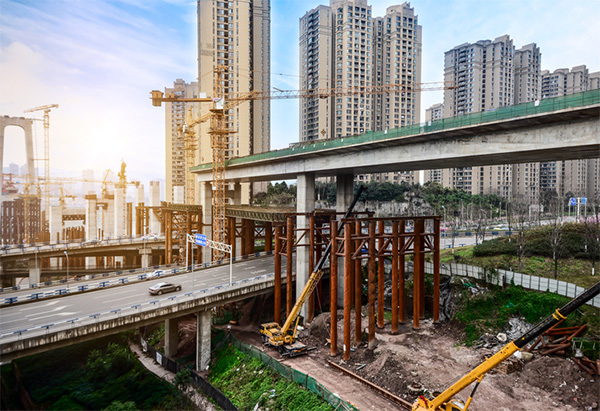Supply chain efficiency threatened by lack of infrastructure investment
Breaking down barriers to U.S. supply chain efficiency needs to be a major focus of America’s economic agenda instead of the “America First” fascination by the current administration.
That’s the word from Thomas J. Donohue, longtime president and CEO of the U.S. Chamber of Commerce and former head of the American Trucking Associations. Donohue spoke at the Chamber’s sixth annual Global Supply Chain Summit, and emphasized the nimbleness of today’s supply chains could be threatened by neglect—at the cost of efficiency.
“An efficient global supply chain is integral to health of U.S. economy,” Donohue said. “We need to protect it, we need to nurture it and we need to promote it.”
But if one wanted to disrupt the global supply chain, Donohue said abrogating free trade agreements would be a great way to do it. But the Trump administration is threatening to pull out of the North American Free Trade Agreement (NAFTA). Year-long negotiations continue among the U.S., Mexico and Canada, and that uncertainty is threatening efficiency.
And America needs to get back into the Trans-Pacific Trade Agreement, which the Trump administration also has turned its back on. Such action is shortsighted, Donohue said.
“We should be at the table writing the rules for the Trans-Pacific Agreement,” Donohue said, “rather than having them written for us. We make stuff together. Our supply chains are highly integrated. That improves supply chains and helps keep the price down.”
Inefficient border procedures can add as much as 15 percent to finished goods, Donohue said. Delays at the border due to bureaucracy can create inefficiencies that hurt carriers, shippers and ultimately consumers.
“We want things to move at the speed of commerce,” Donohue said. “Not at the speed of government.”
Supply chains are the sequence of processes involved in the production of and distribution of a commodity and are both business to business facing and business to consumer facing. Today our nation’s supply chains are facing a pressing impediment to meeting our modern demands – aging infrastructure.
“We can modernize and maximize the efficiency of our supply chains by removing barriers at borders, approving more free trade agreements, properly protecting data without impeding it, and fundamentally improving infrastructure, both at home and around the world,” Donohue said.
Christopher Roberti, the Chamber’s senior vice president of cyber, intelligence and security division, emphasized there would be no growth in supply chain efficiency without secure networks shippers and others can rely on.
“Supply chains are evolving at incredible rates,” Roberti said. “A few years ago it would be difficult to imagine anything being delivered the same day—except pizzas.”
Today, according to a 2017 BRP study, 51% of retailers offer same day delivery. Innovative supply chains are partly the reason retailers can make such bold claims, experts said.
“Infrastructure is the backbone of supply chains,” Donohue said. “And that infrastructure is hurting here at home. We need a major, long-term spending bill to fund it.”
Noting the federal fuel tax has not been increased in 24 years—currently 18.4 cents on gasoline, 24.4 cents on diesel—Donohue said the Chamber and some transport interests are backing a nickel-a-year increase for five years to get the Highway Trust Fund back on firm fiscal footing.
“It’s time to invest in a 21st infrastructure program to support a 21st century economy,” Donohue said. “No more kicking the can down the road.”
America must think worldwide as well. Over the last ten years, global imports grew by 18 percent nominal terms. But imports by emerging and developing countries grew by more than 51 percent, according to Dr. Louise Fox, chief economist for U.S. Agency for International Development. Exports are good for the domestic economy as well with 11.5 million U.S. jobs supported by exports.
“As countries get richer, they want more of our stuff,” Fox said. “Our goods have a high inelasticity of demand.”
For example, the Boeing Co. supply chain for its 787 Dreamliner jumbo jet spans more than 100 countries, Fox said. And without green coffee beans from Africa, Latin America and Asia, Fox said there would be no U.S. specialty wholesale and beverage industries. In 2015, the retail U.S. specialty coffee business was valued at $26 billion.
More than 95 percent of the world’s consumers and 80 percent of the world’s purchasing power lies outside the United States, Fox said. She said future U.S. economic growth and American jobs “increasingly depends” on expanding U.S. trade and investment opportunities in the global marketplace.
“We are stepping up our game with private sector engagement,” Fox said. “The private sector can help us a lot.”













